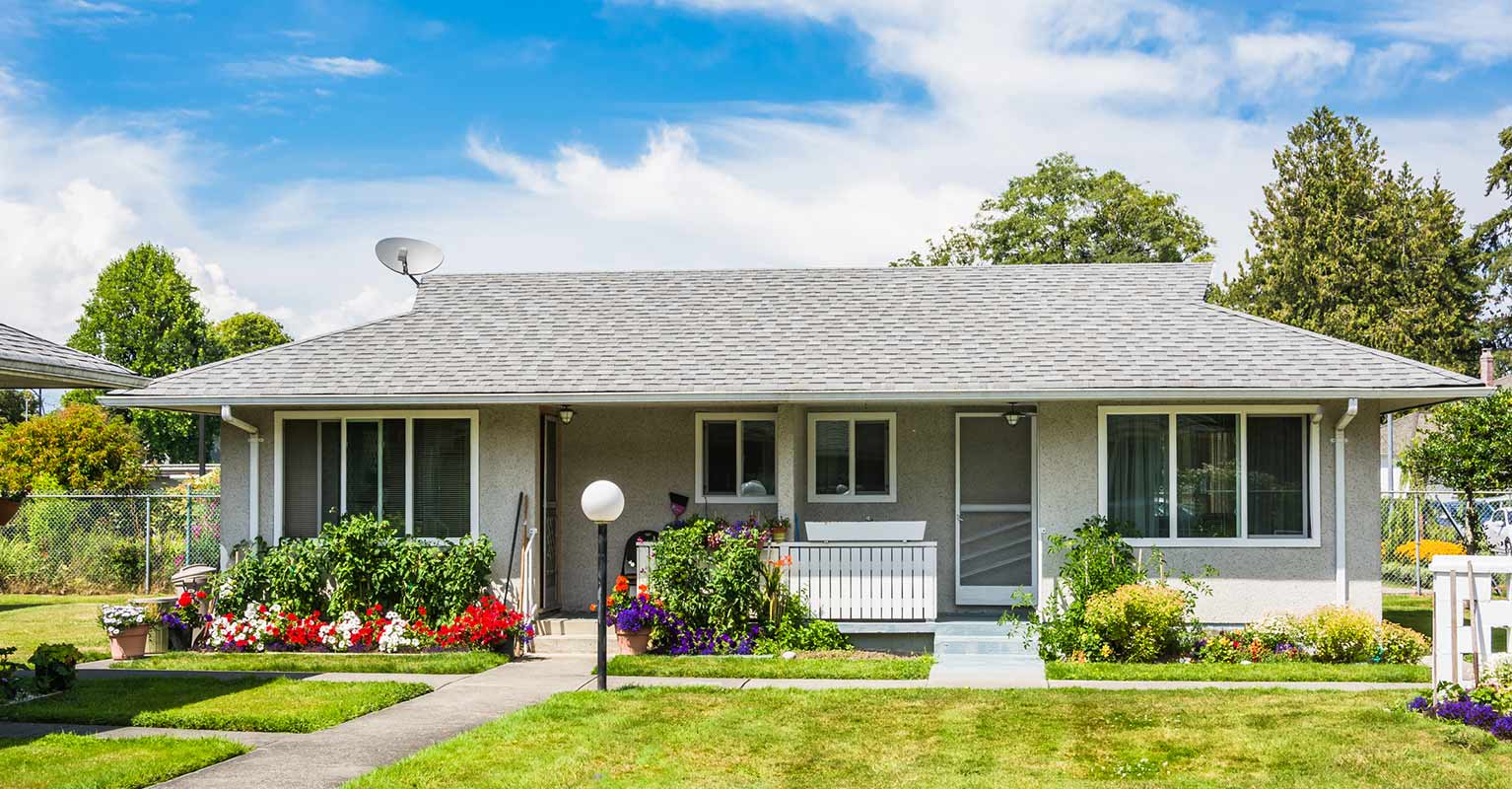To buy a duplex as your first home, start by researching the real estate market for available options and determining your budget. Then, secure financing through a mortgage lender and get pre-approved for a loan.
Next, hire a reliable real estate agent to assist you in finding potential duplex properties that meet your criteria. Once you have identified a suitable duplex, conduct a thorough inspection and negotiate the purchase price. Finally, complete all necessary paperwork and close the deal with the help of a real estate attorney or title company.
This process will ensure a successful purchase of a duplex as your first home.

Credit: www.clarencehomes.com.au
Choosing Between Renting And Buying
Considering the pros and cons of renting and buying, purchasing a duplex as your first home offers the potential for rental income while building equity in a property. With careful consideration of the market and finances, buying a duplex can be a smart investment for first-time homebuyers.
Weighing The Pros And Cons
Renting or buying a duplex as your first home is a significant decision. Before jumping into this endeavor, it’s crucial to carefully weigh the pros and cons to determine which option suits your needs and circumstances. There are several factors to consider, such as financial stability, long-term goals, and personal preferences.
In this section, we will explore those factors to help you make an informed choice.
Factors To Consider
When deciding between renting and buying a duplex, here are some key factors to take into account:
- Financial considerations: Evaluate your financial situation and determine if buying a duplex is feasible. Consider factors like your credit score, down payment savings, monthly budget, and the costs associated with owning a property.
- Flexibility: Determine how much flexibility you need in terms of your living situation. Renting provides more flexibility, as leases typically last for a set period. On the other hand, buying a duplex offers stability in terms of having a place to call your own.
- Investment potential: Evaluate the investment potential of buying a duplex. Property ownership can offer long-term benefits, such as equity growth and possible rental income if you decide to rent out a unit. However, it’s important to carefully analyze the local real estate market to ensure you’re making a sound investment.
- Maintenance responsibilities: Consider your willingness and ability to take on maintenance responsibilities. As a tenant, you typically have fewer maintenance obligations compared to a property owner. If you prefer someone else handling repairs and upkeep, renting may be a more suitable choice.
- Housing market conditions: Research the current housing market conditions in your area. If the market is favorable for buyers, it could be an opportune time to purchase a duplex. On the other hand, if prices are high or the market is competitive, renting might be a more affordable option.
Is Buying A Duplex The Right Choice?
After considering the above factors, you should be in a better position to determine whether buying a duplex is the right choice for you. Remember, there is no one-size-fits-all answer to this question. It depends on your individual circumstances and long-term goals.
Take the time to assess your financial situation, desired level of stability, and willingness to take on the responsibilities of property ownership. Ultimately, make a decision that aligns with your current and future needs.
Understanding The Duplex Market
The duplex market can be complex for first-time homebuyers. Learn the steps and considerations involved in purchasing a duplex as your first home.
If you’re a first-time buyer looking to invest in a home, exploring the option of a duplex can be a smart move. Understanding the duplex market is crucial before diving into this unique real estate opportunity. Here’s everything you need to know:
What Is A Duplex?
A duplex is a residential property consisting of two separate units under one roof. Each unit functions as its own complete living space, complete with bedrooms, bathrooms, kitchens, and sometimes even separate entrances. It’s important to note that owning a duplex means you’ll essentially become a landlord, as you’ll have the option to rent out one unit while living in the other.
Advantages of buying a duplex:
- Rental income: One of the major advantages of owning a duplex is the potential to generate rental income. By renting out one unit, you can offset a portion, if not all, of your mortgage or other property expenses.
- Property appreciation: Owning a duplex in a desired location can result in significant property appreciation over time. As the value of the property increases, so does your equity, providing you with a long-term financial benefit.
- Flexibility and future options: With a duplex, you have the flexibility to live in one unit while renting out the other. This not only gives you the freedom to choose your neighbors but also the possibility of converting the entire property into a rental in the future, should your plans change.
Potential challenges of owning a duplex:
- Managing tenants: Dealing with tenants can sometimes be challenging, from collecting rent to addressing maintenance issues. It’s important to consider if you have the time and resources to manage your property or if you’d prefer to hire a property manager.
- Higher initial costs: Purchasing a duplex typically requires a larger upfront investment compared to buying a single-family home. This includes higher down payments, closing costs, and potential maintenance expenses for both units.
- Shared responsibilities: As a duplex owner, you’ll be responsible for shared expenses and maintenance tasks such as roof repairs, plumbing, and landscaping. It’s important to have a clear plan in place for handling these shared responsibilities with your tenant.
Buying a duplex as a first home can be an exciting and profitable venture. By understanding the duplex market, you can make informed decisions and maximize the benefits while navigating potential challenges. Take your time to research and evaluate the market conditions and property options to ensure a successful investment.
Financing Your Duplex Purchase
Looking for financing options to buy your first duplex as a home? Discover the best ways to secure the funds you need for this real estate investment. Explore different financing avenues and make an informed decision about how to finance your duplex purchase.
Are you ready to take the exciting step of buying a duplex as your first home? One of the key aspects to consider is financing your duplex purchase. In this section, we will discuss important topics such as saving for a down payment, getting pre-approved for a mortgage, and exploring loan options.
Let’s dive in!
Saving For A Down Payment:
Purchasing a duplex involves a significant financial commitment. Here are some points to keep in mind when saving for a down payment:
- Assess your financial situation: Begin by evaluating your income and expenses to determine how much you can set aside each month towards your down payment.
- Set a budget: Create a budget that allows you to save a specific amount each month. Consider making adjustments to your spending habits and prioritize saving for your down payment.
- Explore down payment assistance programs: Research any available down payment assistance programs that can provide financial support or favorable terms to help you achieve your goal faster.
- Consider alternative sources: Besides your regular savings, explore possibilities like gifts from family or selling assets to boost your down payment funds.
Getting Pre-Approved For A Mortgage:
Before starting your duplex search, it is crucial to get pre-approved for a mortgage. Here is what you need to know:
- Gather necessary documents: Lenders typically require documents such as pay stubs, tax returns, bank statements, and employment information. Ensure you have these ready before seeking pre-approval.
- Research lenders: Shop around and compare different lenders to find the best mortgage options and interest rates that suit your needs.
- Submit your application: This involves providing your financial information and allowing the lender to perform a credit check. Be prepared to answer any additional questions that may arise during this process.
- Understand the pre-approval letter: Once approved, you will receive a pre-approval letter from the lender. This letter outlines the loan amount you are eligible for, allowing you to search for a duplex within that financial range.
Exploring Loan Options:
When it comes to financing your duplex purchase, it’s essential to consider various loan options. Here are some options to explore:
- Conventional loans: Offered by traditional lenders, conventional loans typically require a larger down payment but may offer more flexibility in terms of property type and use.
- Fha loans: Backed by the federal housing administration, fha loans often have lower down payment requirements and offer more lenient credit requirements.
- Va loans: Available to veterans and active-duty military personnel, va loans offer competitive interest rates and allow for a zero-down payment, making them an attractive option for eligible borrowers.
- Usda loans: Aimed at rural homebuyers, usda loans provide financing with no down payment requirement and offer low-interest rates.
Financing your duplex purchase involves saving for a down payment, getting pre-approved for a mortgage, and exploring loan options. By carefully considering these aspects, you can ensure a smoother and more informed purchasing process. So, take the leap, and soon you could be enjoying the benefits of owning a duplex as your first home.
Finding The Right Duplex
Looking to buy your first home? Learn how to find the perfect duplex with our helpful guide. Discover the steps, tips, and considerations you need to make the right choice for your first home purchase.
Determining Your Budget
- Assess your financial situation: Start by reviewing your current income, savings, and expenses to determine how much you can afford to spend on a duplex. Consider factors such as down payment, closing costs, and monthly mortgage payments.
- Get pre-approved for a loan: Before you start your search, it’s crucial to get pre-approved for a loan. This will give you a clear idea of your budget and make you a more attractive buyer to sellers.
- Consider additional costs: Remember to factor in other expenses besides the mortgage, such as property taxes, insurance, and maintenance costs. It’s essential to have a realistic budget that includes all potential costs.
- Decide on a comfortable payment amount: Determine how much you are comfortable paying each month for your mortgage payment. Avoid stretching your finances too thin by selecting a payment amount that allows for financial stability.
Researching Neighborhoods
- Identify your priorities: Make a list of the key features and amenities that matter to you in a neighborhood. Consider factors such as proximity to work, schools, public transportation, shopping centers, and recreational areas.
- Check out crime rates: Research the crime rates in the neighborhoods you’re considering. Look for areas with low crime rates to ensure the safety and security of your future home.
- Explore the local amenities: Look for neighborhoods that offer a range of amenities, such as parks, restaurants, cafes, and community centers. Access to these amenities can greatly enhance your quality of life.
- Consider future developments: Research any planned developments or infrastructure projects in the area. These projects can indicate future growth and potential value appreciation of your property.
- Seek local insight: Visit the neighborhoods you’re interested in and talk to residents. Their firsthand experiences and perspectives can provide valuable insights into the community and help you make an informed decision.
Working With A Real Estate Agent
- Find a reputable real estate agent: Look for an experienced and knowledgeable real estate agent who specializes in duplex properties. They will have a deep understanding of the market and can guide you through the buying process.
- Communicate your requirements: Clearly communicate your budget, preferred neighborhoods, and specific needs to your real estate agent. This will help them tailor the search to find the duplex that best meets your criteria.
- Tap into their network: A good real estate agent will have an extensive network and access to off-market listings. They can help you uncover hidden opportunities and increase your chances of finding the right duplex.
- Benefit from their expertise: Lean on your real estate agent’s expertise and negotiation skills. They can provide guidance on property inspections, price negotiations, and any legal aspects involved in the buying process.
- Stay involved in the process: While your real estate agent will handle most of the legwork, it’s crucial to stay actively involved in the process. Attend property viewings, ask questions, and provide feedback to ensure you’re making an informed decision.
Remember, buying a duplex as your first home is an exciting venture, but it requires careful consideration and thorough research. By determining your budget, researching neighborhoods, and working with a knowledgeable real estate agent, you’ll be well on your way to finding the right duplex for your needs.
Evaluating Duplex Properties
Discover the essential steps for buying your first home: evaluating duplex properties. Gain insights into the process, from finding the right location to evaluating financial aspects, and make the most informed decision for your future as a homeowner.
When it comes to buying a duplex as your first home, evaluating the available properties is a crucial step to ensure a wise investment. Conducting thorough inspections, reviewing property history and disclosures, as well as assessing rental potential are key factors to consider.
Let’s explore each of these aspects in more detail:
Conducting Property Inspections
To make an informed decision when purchasing a duplex, conducting thorough property inspections is essential. Here’s what you should look for:
- Structural integrity: Examine the foundation, walls, roof, and overall structure to ensure everything is stable and in good condition.
- Plumbing and electrical systems: Check for leaks, rusted pipes, outdated wiring, and ensure that all systems are up to code.
- Heating and cooling: Assess the efficiency and functionality of the heating, ventilation, and air conditioning (hvac) systems.
- Windows and doors: Inspect windows for proper sealing, functionality, and any signs of damage. Ensure doors are secure and in good condition.
- Appliances and fixtures: Test the functionality of appliances, faucets, toilets, showers, and any other fixtures that come with the property.
Reviewing Property History And Disclosures
Learning about the history of the duplex you’re interested in can provide valuable insights. Here’s what you should review:
- Ownership history: Find out how many times the property has changed owners and whether any significant events have occurred during its lifetime.
- Renovations and repairs: Determine if any renovations or repairs have been made to the duplex and if they were done by professionals or homeowners.
- Maintenance records: Check if regular maintenance has been performed on the property, as this can indicate responsible ownership.
- Environmental concerns: Inquire about any past or present environmental issues that may affect the property’s value or safety, such as asbestos or mold.
- Disclosures: Read through any disclosures provided by the seller, which may include known issues or defects within the property.
Assessing Rental Potential
When buying a duplex, considering its rental potential is crucial, as it can offer you additional income. Here’s how to assess rental potential:
- Location: Evaluate the neighborhood, proximity to amenities, schools, transportation, and other factors that attract potential tenants.
- Market research: Research the local rental market to determine the average rental rates for similar duplex properties in the area.
- Unit size and layout: Consider the number of bedrooms, bathrooms, and overall layout to ensure it meets the demands of potential renters.
- Condition and amenities: Assess the condition and attractiveness of the duplex, including any additional perks such as parking spaces or a backyard.
- Vacancy rates: Look into the current vacancy rates in the area to gauge the demand for rental properties and the likelihood of finding tenants.
By carefully evaluating duplex properties through property inspections, reviewing their history and disclosures, as well as assessing their rental potential, you can make an informed decision when purchasing your first home. Remember to consult with professionals such as real estate agents and home inspectors who can assist you throughout this process.
Making An Offer And Closing The Deal
Learn the ins and outs of making an offer and closing the deal on your first duplex. Discover tips and strategies to navigate the process smoothly and secure your first home.
Buying a duplex as your first home is an exciting venture that comes with unique considerations. Once you have found the perfect duplex and determined its suitability for your needs, it’s time to make an offer and close the deal.
This section will guide you through the negotiation, purchase agreement, financing, and closing process, ensuring a smooth transition to becoming a duplex owner.
Negotiating The Offer Price
When it comes to negotiating the offer price for your duplex, it’s essential to approach the process with confidence and information. Consider the following tips:
- Research similar duplexes in the area: Understanding the local market will provide insight into fair pricing, allowing you to make a competitive offer.
- Determine your budget and limits: Set a clear budget and establish the maximum amount you are willing to pay for the duplex. This will guide your negotiation strategy.
- Consider contingencies for repairs or inspections: Evaluate the duplex’s condition and factor in potential repairs or inspections that may affect the final price.
- Present a compelling offer: Craft an offer that not only showcases your interest but also demonstrates your financial readiness and ability to close the deal promptly.
Reviewing And Signing The Purchase Agreement
Once your offer has been accepted, reviewing and signing the purchase agreement is the next step in the duplex buying process. Here’s what you should keep in mind:
- Consult with a real estate attorney or agent: Seek professional advice to ensure you fully understand the terms and conditions of the purchase agreement.
- Review the contract thoroughly: Carefully examine each section of the agreement, including the purchase price, closing date, inspection contingencies, and any additional terms.
- Address any concerns or negotiations: If certain aspects of the purchase agreement require clarification or adjustments, communicate these matters to the seller promptly.
- Sign the agreement: When you are satisfied with all the terms and conditions, sign the purchase agreement to make it legally binding.
Finalizing The Financing And Closing Process
As you approach the closing process, finalizing the financing is crucial to secure the purchase of your duplex. Consider the following steps:
- Coordinate with your lender: Work closely with your lender to secure the financing required for the duplex. Provide any necessary documentation and resolve any outstanding requirements promptly.
- Complete inspections and appraisals: Ensure that all necessary inspections and property appraisals are completed by the agreed-upon deadlines.
- Obtain homeowner’s insurance: Prior to closing, arrange homeowner’s insurance coverage for your duplex to protect your investment.
- Coordinate the closing logistics: Collaborate with all parties involved, including the seller, title company, attorney, and lender, to schedule and organize the closing date.
- Attend the closing: On the designated closing date, bring the necessary paperwork, identification, and funds to complete the transaction. Review all documents carefully before signing and finalizing the deal.
By adhering to these steps, negotiating the offer price, reviewing and signing the purchase agreement, and finalizing the financing and closing process, you can confidently navigate the journey of purchasing a duplex as your first home.
Managing Your Duplex As A First-Time Homeowner
As a first-time homeowner, navigating the process of buying a duplex can be overwhelming. This guide will help you manage your new property effectively, providing tips and insights for a successful home investment.
Congratulations on purchasing your first duplex! As a first-time homeowner and duplex owner, it’s important to understand how to effectively manage your property. From finding good tenants to setting rental rates and understanding your landlord responsibilities, this section will guide you through the process.
Finding Good Tenants:
- Conduct thorough background checks: When screening potential tenants, perform comprehensive background checks to ensure their credibility and reliability. Look for factors such as their credit history, rental references, and employment verification.
- Interview potential tenants: Schedule interviews with potential tenants to assess their compatibility with your duplex. Use this opportunity to ask relevant questions about their rental history, lifestyle, and reasons for moving.
- Require references: Request references from past landlords to gain insight into the tenant’s behavior and reliability. Additionally, ask for personal references to get a better understanding of their character.
- Consider a property management company: If you’re unsure or have limited time to manage tenant screenings, consider hiring a property management company. They can handle the process on your behalf, ensuring thoroughness and efficiency.
Setting Adequate Rental Rates:
- Research the local market: To set an appropriate rental rate for your duplex, research the local market. Consider factors such as location, similar properties for rent in the area, and current rental trends.
- Evaluate your expenses: Calculate your expenses, including mortgage payments, property taxes, insurance, repairs, and any additional costs. Ensure that your rental rate covers these expenses and provides a reasonable profit margin.
- Assess the demand: Evaluate the demand for duplexes in your area. If there is high demand, you may have more flexibility in setting a higher rental rate. Conversely, if the demand is low, you may need to adjust your rental rate accordingly.
Understanding Landlord Responsibilities:
- Maintain the property: As a landlord, it’s crucial to ensure that your duplex is well-maintained. Regularly inspect the property, address necessary repairs promptly, and keep it in good condition to attract and retain tenants.
- Communicate effectively: Establish clear channels of communication with your tenants. Provide them with your contact information and promptly respond to their queries, concerns, or maintenance requests.
- Uphold legal obligations: Familiarize yourself with local laws and regulations regarding landlord-tenant relationships. Understand your responsibilities regarding security deposits, eviction procedures, lease agreements, and tenant rights.
- Provide a safe environment: As the property owner, it’s your responsibility to provide a safe environment for your tenants. Install necessary safety features, such as smoke detectors and secure locks, and ensure any potential hazards are minimized.
Managing your duplex as a first-time homeowner can be both exciting and challenging. By finding good tenants, setting adequate rental rates, and understanding your landlord responsibilities, you can ensure a smooth and successful experience. Remember to always prioritize effective communication, property maintenance, and compliance with legal obligations.
Best of luck on your journey as a duplex owner!
Building Equity And Future Investment Opportunities
Learn how to buy a duplex as your first home and start building equity for future investment opportunities. Discover the steps, benefits, and strategies to make this smart real estate decision.
Buying a duplex as your first home can provide you with a unique opportunity to build equity and set a strong foundation for future investment opportunities. By leveraging the rental income from the second unit, you can effectively reduce your own housing costs and gradually increase your net worth.
Here are three key ways you can maximize the potential of your duplex and create a solid financial future:
Increasing Property Value
Owning a duplex opens up several avenues for increasing the overall value of your property. Implement these strategies to boost equity and enhance the return on your investment:
- Regular maintenance: Keeping the property in good condition not only ensures a comfortable living environment for tenants but also preserves its value. Regularly inspect and maintain the duplex, addressing any repairs or issues promptly.
- Curb appeal: Enhancing the property’s curb appeal through landscaping, exterior upgrades, and exterior paint can greatly increase its value. A well-maintained and visually appealing duplex will attract prospective tenants and potential buyers if you decide to sell in the future.
- Interior upgrades: Consider renovating key areas of the duplex, such as kitchens and bathrooms, to modernize the space and increase its value. Focus on fixtures, flooring, and cabinetry to create a fresh and inviting atmosphere.
- Energy efficiency: Implement energy-efficient upgrades, such as installing solar panels, upgrading insulation, and utilizing smart home technology. Not only will these upgrades save you money on utilities, but they will also make your property more appealing to tenants and eco-conscious buyers.
Exploring Future Expansion Or Renovation Options
Owning a duplex not only provides an opportunity for additional rental income but also allows for future expansion or renovation. Consider these options to maximize your investment potential:
- Basement conversion: If your duplex has an unfinished basement, consider converting it into a livable space. This additional unit can serve as a source of additional rental income or as an extended living area for yourself.
- Addition: Depending on local regulations and the size of your property, you may have the option to add on to your existing duplex. Adding an extra unit can significantly increase the rental income and property value.
- Upgrading unit amenities: As you progress, consider upgrading the amenities within each unit to attract higher-paying tenants. Upgraded features like high-end appliances, hardwood flooring, and modern fixtures can help increase rental rates and overall property value.
Building A Real Estate Portfolio
Investing in a duplex as your first home can be the stepping stone to building a lucrative real estate portfolio. Consider these tips to expand your investment opportunities:
- Property management: As you gain experience, consider managing the duplex yourself or hiring a property management company. This will allow you to focus on additional real estate ventures while ensuring your duplex continues to generate income.
- Future purchases: Once you have successfully managed your first duplex, consider expanding your portfolio by purchasing additional rental properties. Diversifying your real estate investments can help mitigate risks and increase your potential for long-term wealth.
- Rental market analysis: Stay informed about the local rental market trends and economic indicators. This will allow you to make informed decisions regarding rent increases, property upgrades, and future purchases.
By utilizing these strategies for increasing property value, exploring future expansion or renovation options, and building a real estate portfolio, you can maximize the potential of your duplex as your first home. Start building equity and laying the foundation for a successful real estate investment journey today.
Frequently Asked Questions On How To Buy A Duplex As First Home
How Can I Buy A Duplex As My First Home?
You can buy a duplex as your first home by saving enough for a down payment, getting pre-approved for a mortgage, finding a real estate agent experienced in multi-family properties, and conducting thorough research on the market and potential rental income.
What Are The Benefits Of Buying A Duplex As A First Home?
Buying a duplex as a first home offers several benefits, such as rental income that can help cover mortgage payments, potential tax deductions, building equity, and the opportunity to live in one unit while renting out the other to offset costs.
What Factors Should I Consider Before Buying A Duplex As A First Home?
Before buying a duplex as a first home, consider factors such as your financial situation, rental market conditions, location, property management, maintenance costs, and legal obligations. Additionally, assess the potential rental income and ensure it aligns with your long-term goals.
Conclusion
In summation, purchasing a duplex as your first home can be a wise investment strategy that offers various benefits. By leveraging rental income from the second unit, you can offset your own mortgage costs and potentially generate passive income. However, it is crucial to thoroughly research and understand all aspects of the process, including financing options, location considerations, and property management.
Conducting a thorough inspection and working with a qualified real estate agent can help you make an informed decision. Additionally, carefully reviewing the rental market and understanding rental laws in your area will ensure a smooth rental experience. Lastly, continually educating yourself on real estate trends and regulations can help you maximize your investment and make informed decisions in the future.
With the right approach and careful planning, buying a duplex can be an excellent opportunity for first-time homebuyers to enter the real estate market.




